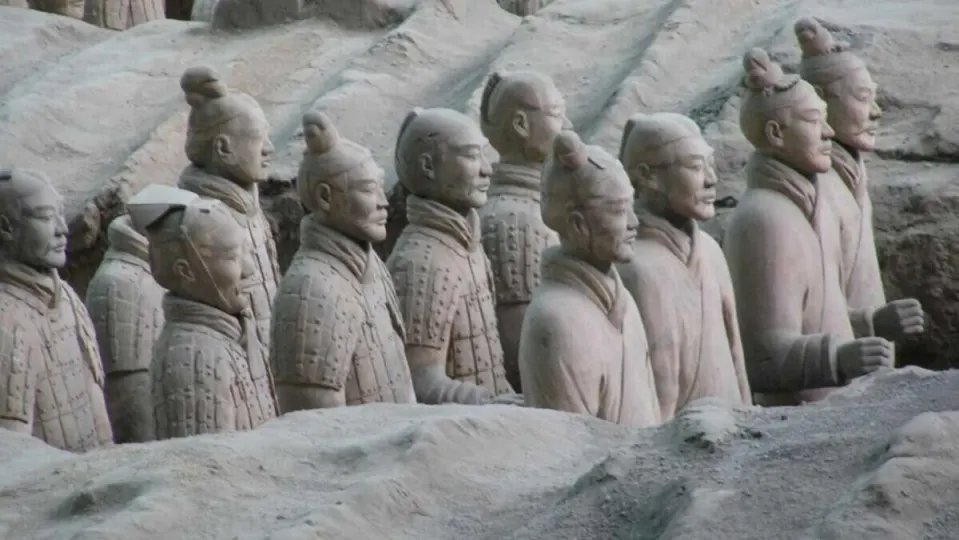Year 221 B.C. Qin Shi Huang, then king of the Qin region in China, became the emperor of a united country for the first time in its history. He was a tyrant who burned books and beat intellectuals, but it is no less true that under his rule the Terracotta warriors were created and even the Great Wall of China began to be built. After his death (due to a recipe based on jade and mercury, which, for whatever reason, was not good for him) he was buried in a tomb of which absolutely no manuscript of its construction is preserved. And therein lies the problem.
It’s a trap!
Year 1974. A group of Chinese farmers manage to find the tomb of Qin Shi Huang… but archaeologists, fifty years later, keep it closed. And there is a reason for that: it is sensed that inside there may be all kinds of surprise traps, as if it were a video game but deadly real, from spears falling from the ceiling to mercury for anyone who dares to disturb his eternal sleep. Rich people now have giant dogs, but mercury is much scarier than any bite.
The necropolis has been thoroughly investigated (the famous terracotta warriors were found there), but opening the tomb is another matter: no one knows what can be found inside. In fact, a century after the death of the emperor it was written “Artisans were ordered to make arrows and spears intended to shoot anyone who entered the tomb. Mercury was used to simulate the hundred rivers, the Yangtze, the Yellow River and the great sea, and prepared to be set in motion mechanically.”

The problem is not so much that of being able to die (for something there are suits prepared for the purpose of not doing so), but that the excavation can damage the tomb and lose very important historical information: right now there is no way to enter that is not invasive and with great risk of causing a collapse. After all, it was mistakes of this kind, caused by haste and the desire to do everything in a hurry, which caused the definitive end of the city of Troy, which sank in 1870 and of which little has been rescued.
There is probably little left to find a solution and see what the emperor has so carefully stored there. Or maybe that’s not such a good idea. I mean… We’ve all seen ‘The Mummy‘, right?
Some of the links added in the article are part of affiliate campaigns and may represent benefits for Softonic.


